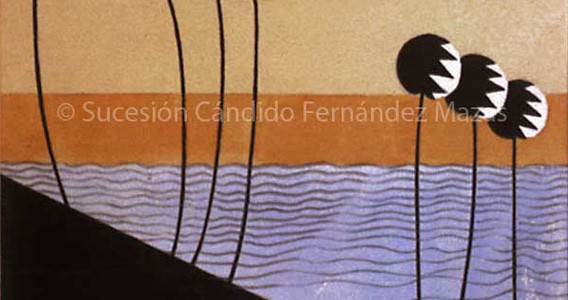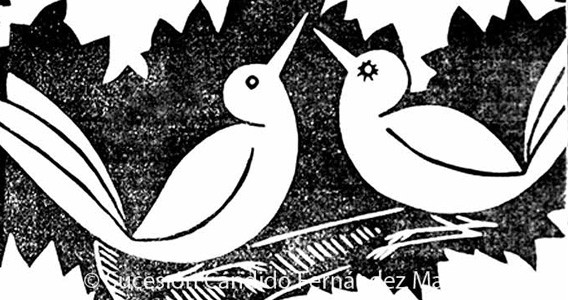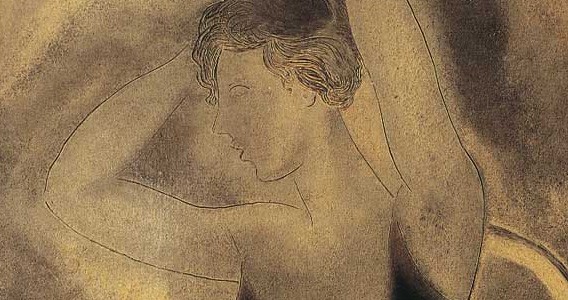Cándido Fernández Mazas vivía entonces, hablo del invierno de mil novecientos treinta, en una pensión e la calle Carretas, en Madrid. Alguna vez me invitó a comer en aquella pensión. Íbamos juntos al teatro Español, donde actuaba Margarita Xirgú y, por las noches, a la Granja el Henar, donde una veintena de personas se reunía en torno a don Ramón del Valle Inclán. Recuerdo entre ellos a los gallegos Dieste, Otero Espasandín y Carlos, el pintor santiagués, Carlos Maside, que dibujaba caricaturas políticas para algún diario. Yo era el más joven de todos y solía refugiarme en un rincón, a ver y a escuchar. Nos retirábamos tarde, y era precisamente a esas horas de la noche, frías y claras del Madrid de entonces, cuando Candochas, que así llamábamos a Cándido, desplegaba su genio vociferante, contra esto y aquello, para sorpresa de los guardias que nos veían pasar, que nos escuchaban, que a lo mejor estaban conformes con lo que Candochas decía. Tenía la voz recia, como su bastón que era un cayado de tojo, doblado a fuego. Cándido fluctuaba entre la vocación de pintor y la de escritor. Acababa de publicar “Santa Margorí”, dedicada “A mi bruna alegría mi mediterránea”, y una tarde de domingo nos leyó, a unos amigos, una comedia en gallego, de dos que tenía, que no sé qué habrá sido de ellas. Tenía el doble don, el de la palabra y de la mano, y hablaba de su literatura como de su pintura: como un manojo de problemas, más que de soluciones. Había estado en París; las vanguardias no le satisfacían precisamente como eso, como soluciones, pero habían dejado su espíritu sembrado de problemas. A quien admiraba realmente era a Valle Inclán, pero él quería ir más allá y en lengua gallega. También manejaba el castellano con destreza. Cándido Fernández Mazas o Marzás como ya se le empezaba a llamar, malgastaba su ingenio contando cosas de Orense. El entierro de una prostituta, que yo describí en alguna parte, a él se lo oí contar, y mi descripción no es nada, comparada al cuento de Candochas. Lo que había de invención en él, no lo sé, porque la historia había acontecido antes de su nacimiento, como otras muchas que contaba, que no había visto, que le habían contado, que el recreaba: la llegada de Victoriano Taibo a Orense, después de publicado su libro “Voume”, o la llegada del escultor Benlliure. Continue reading “Cándido Fernández Mazas
Gonzalo Torrente Ballester”





